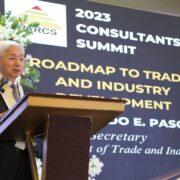
The Philippines has long been hailed as a hub of entrepreneurial spirit, and in recent years, the country has witnessed a remarkable surge in the franchising industry. As more and more Filipinos seek the security and proven success of established brands, the franchise model has become an increasingly attractive avenue for both aspiring business owners and seasoned entrepreneurs.
The appeal of franchising lies in its ability to provide a turnkey solution to entrepreneurship. By tapping into an existing brand, franchisees can benefit from the parent company’s proven business model, extensive market knowledge, and robust support systems. This, in turn, helps to mitigate the risks often associated with starting a business from scratch.
“Franchising has become an increasingly popular choice for entrepreneurs in the Philippines,” business analyst Maria Gomez told Balikbayan Magazine. “It offers a unique blend of independence and support, allowing individuals to harness the power of an established brand while still maintaining a certain level of autonomy.”
The rise of franchising in the Philippines can be attributed to a variety of factors, including the country’s burgeoning middle class, the growing popularity of international brands, and the government’s efforts to promote small and medium-sized enterprises (SMEs).
“The Philippines has a large and rapidly growing consumer base, with a rising middle class that is eager to embrace new products and services,” Gomez explained. “This, combined with the country’s openness to foreign investment, has created a fertile environment for franchising to thrive.”
Before taking the plunge into franchising, it’s crucial for aspiring entrepreneurs to consider several key factors. The initial investment required, the franchisor’s track record, the level of support provided, and the long-term viability of the business model are all crucial elements to evaluate.
“Conducting thorough research and due diligence is essential when considering a franchise opportunity,” Gomez advises. “Prospective franchisees should carefully analyze the financial requirements, the franchisor’s reputation, and the level of training and ongoing support offered to ensure the best chance of success.”
Additionally, it’s vital for franchisees to have a clear understanding of their own strengths, weaknesses, and risk tolerance. Franchising may offer a well-trodden path to entrepreneurship, but it still requires a significant investment of time, effort, and resources.
“Franchising is not a one-size-fits-all solution,” Gomez cautioned. “Aspiring franchisees must carefully evaluate their personal and financial circumstances to determine if the franchise model aligns with their long-term goals and risk appetite.”
As the Philippines continues to embrace the franchise model, the opportunities for aspiring entrepreneurs have never been more abundant. By navigating the landscape with a keen eye for detail and a deep understanding of their own capabilities, franchisees can unlock the full potential of this booming industry and contribute to the country’s vibrant entrepreneurial ecosystem.






